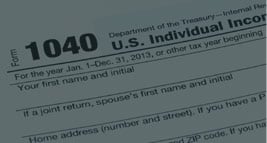Your Center For Tax Forms & More
Easily find the income tax, immigration and DMV forms you need on YourFreeFormsCenter.
We've included links to the most used forms all in one convenient place.
Tax Tips

Maximizing Your 401K Contributions
Maximizing Your 401K Contributions
Study after study decries Americans' lack of or limited retirement savings. If you’re like the majority of people, you need to save aggressively.
“With millions of Americans behind in their retirement savings, it is important not only to save, but to save more each year,” says Greg McBride, Bankrate.com chief financial analyst, and a CFA.
For many retirement savers, their 401(k) is their main retirement savings vehicle. In 2018, you can contribute up to $18,500 to your 401(k) plan. In order to do that, you will have to contribute $1,541.66 per month. If you’re 50 or older, you can contribute $6,000 more – up to $24,000 in 2018. That's a monthly contribution of $2,000.
Contributing that much may not be possible, but if it is, it might be a good idea. Let's take a look at a few reasons why. And for the super savers out there, we'll also discuss what to do after you've maxed out your 401(k).
“Participants who make tax-deferred contributions to their 401(k) are allowed to write them off of their income come tax time," says Mark Hebner, founder and president of Index Fund Advisors, Inc., in Irvine, Calif., and author of “Index Funds: The 12-Step Recovery Program for Active Investors."
"You will eventually pay taxes once you withdraw funds in retirement," Hebner adds. "But it may be advantageous to make tax-deferred contributions, especially if you expect to find yourself in a lower tax bracket in retirement."
If you contribute the full $18,500 and fall into the 24% tax bracket for 2018 (annual income between $82,501 and $157,500), that's $4,440 you won't owe to Uncle Sam. If you’re 50 or older and making catch-up contributions, you could save as much as $5,760. It’s hard to say no to savings like that.

Tips to Avoid an IRS Audit
Tips to Avoid an IRS Audit
Check Your Numbers
While few audits are generated by mathematical or typographical errors alone, too many errors raise a red flag. So be sure to double-check your numbers.
Be Mindful of Itemized Deductions
The IRS keeps statistics on the average amount of each type of itemized deduction for taxpayers at various income levels and uses this information to rank returns based on the likelihood of potential errors. If the IRS scan of your return shows unusually high deductions for charity, travel, entertainment and healthcare, you could be called out. So think twice before you itemize that treadmill you never use as a healthcare expense.
Small Businesses, Beware
If you’re a small business, much of your success no doubt can be attributed to your creativity. But the IRS generally frowns on creativity when it comes to your taxes. Be extra cautious if you take a home office deduction, have operated in the red for several consecutive years, and/or prepare your own returns.
Unincorporated Business = Audits
Unincorporated businesses are four times more likely to be audited than similarly sized C-corporations. They are also ten times more likely to be audited than partnerships or S-Corporations. Check with your tax advisor or attorney; it may be time to reorganize your business.
Avoid 1099
The IRS is cracking down on the practice of misclassifying employees as contractors, and they know it is a very common problem. So unless you’re itching for an audit, don’t do it.
Report All of Your Income
If you’ve received a Form 1099, so has the IRS – so they’ll notice if the amounts don’t match up. The matching process is completed by the IRS computer, and it automatically generates letters to taxpayers whose numbers don’t jive with Forms 1099 and other documents sent to them. Remember that alimony counts as income.

Ways to Boost Your Tax Refund
Ways to Boost Your Tax Refund
Rethink filing status to boost your refund
One of the first decisions you make when completing your tax return - choosing a filing status - can affect your refund's size, especially if you're married. While most married couples file jointly—approximately 96 percent do each year—a joint return is not always the most beneficial way to boost your refund. Married Filing Separately status requires more effort, but the time you invest offers tax savings under the right circumstances. Calculating your taxes both ways will point you in the higher refund direction. When you use TurboTax, we’ll do this calculation for you and recommend the best filing status.
Don't shy away from tax deductions
Did you know the miles you drive for charitable or medical purposes are deductible? If you itemize deductions, they’re worth 18 cents per mile for 2018. The medical miles are subject to an overall AGI threshold for total medical expenses, but the charity miles are fully deductible. So if you drove 50 miles per week to volunteer for a charity in 2018, that’s an additional $450 deduction! If you’re in the 22% tax bracket, that’s an extra $100 in your pocket.
Maximize your IRA and HSA contributions
You have until the April 15th filing deadline (unless delayed due to a weekend or holiday) to open or contribute to a traditional IRA for the previous tax year. That means you can make a contribution that counts for your 2018 return by April 15, 2019. That gives you the flexibility of claiming the credit on your return, filing early and using your refund to open the account. Traditional IRA contributions reduce your taxable income. You can take advantage of the maximum contribution and, if you're at least 50 years old, the catch-up provision, to add to your IRA. And though contributions to a Roth IRA don't give you a deduction, they still qualify for the valuable Saver's Credit if you meet income guidelines.
Become credit savvy and refund happy
Credits usually work better than deductions as refund boosters. That’s because they are a dollar-for-dollar reduction of your taxes. If you get a $100 credit you get $100 off your taxes. There are special situations where a deduction provides a better benefit, which TurboTax will alert you to. Yet many American leave money on the table when it comes to claiming tax credits. Did you know that 20% of eligible Americans don't claim the Earned Income Tax Credit? If you're working and meet the guidelines, you may be eligible for the EITC even if you're single with no children. If you have kids, it pays to claim the Dependent and Child Care Credit.





